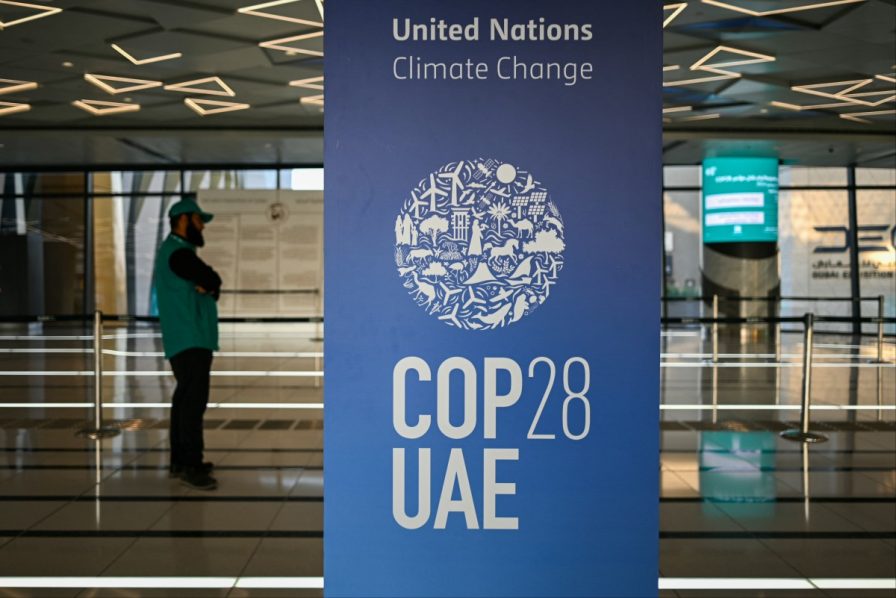
The clouds surrounding the loss and damage fund were lifted last week, as countries operationalised and contributed to the fund, even as civil society groups said the contribution is a drop in the ocean and could not deliver climate justice, writes Chinedum Uwaegbulam.
Nearly 200 nations agreed to operationalise the Loss and Damage Fund to help vulnerable countries deal with more extreme climate events. The event saw over $400 million in pledges from at least seven nations to start the programme.
Commenting on the Loss and Damage Fund, UN Secretary General posted on X, formerly Twitter, “I welcome the decision taken to operationalise the new Loss and Damage Fund – an essential tool for delivering climate justice. I call on leaders to make generous contributions and get the fund and climate conference on a strong footing.”
An agreement to establish the fund was reached at COP27 last year, however, disagreements about how it should be funded and managed have been slow. Initial pledges to the fund last week were made by the European Union, which agreed to provide $245 million including $109 million from Germany.
A further $100 million came from the United Arab Emirates, with other contributions from the UK at about $51 million, the US with about $17.5 million and Japan with $10 million.
Civil society groups said COP28 is running on a basic agenda that is destined to leave the planet on life support in the best outcome scenario. This is because climate action predicated on the Paris Agreement is a voluntary emissions reduction pathway which upturns both climate science and justice.
Just before the COP opened UNEP published the Emissions Gap report, which revealed that temperatures showed that voluntary emissions cut based on Nationally Determined Contributions will see the world heating up by as much as 2.9 degrees Celsius above pre-industrial levels. That will be an utter disaster.
The world has already seen temperatures topping 1.5C for 86 days this year. The report also warns that the chance of keeping to the 1.5C limit of the Paris Agreement is a slim 14 per cent and will require deep emissions cuts by the big polluters.
Director, Health of Mother Earth Foundation (HOMEF),Nnimmo Bassey told The Guardian that “the trajectory of the COP appears to favour false solutions such as carbon offsetting and related but unproven technofixes.
“Our expectation is that politicians will unequivocally agree to phase out fossil fuels and ensure justice in the needed energy transition. The total pledged on the first day added up to about $400million — a drop in the ocean of the needed $400 billion per year.
“Although some would applaud the token offered so far, we do not ignore the fact that $400m may just be equal to the price of one missile which the big polluters do not blink before exploding in territories to create more vulnerability rather than invert in building of resilience,” Bassey, who is participating at the COP28 said.
Head of Global Political Strategy, Climate Action Network International, Harjeet Singh, said: “While these funds are valuable in initiating the fund’s activities, it is important to recognise that the costs of rebuilding from the devastating effects of climate disasters run into hundreds of billions of dollars yearly.
“Rich countries, given their significantly higher historical responsibility, must do more on a scale commensurate with their impact on planet-heating emissions.”
Policy Director and Lead economist for the Climate and Energy Programme at the Union of Concerned Scientists, Rachel Cleetus, highlighted that “we are in the midst of a climate crisis falling disproportionately on marginalised and disadvantaged people.”
She said: “The consensus recommendations for operationalising the fund are far from perfect yet, an important step forward and should be quickly adopted at COP28. Richer nations–including the United States–must also live up to their responsibility and provide robust resources for the fund.
“The needs are immense and crushing for low- and middle-income nations already reeling from billions of dollars of damages and an immense human toll from extreme climate impacts.
“Moving this agreement forward expeditiously will also create the space for addressing other pressing issues, including the phase out of fossil fuels which are the root cause of climate change and loss and damage.”
According to Teresa Anderson, Global Lead on Climate Justice, ActionAid International, COP needs to reach for the stars and call for a full phase out of fossil fuels that is fair and funded with particular attention paid to agriculture.
She said: “We need real commitments to move away from industrialised agriculture, which is the second largest cause of greenhouse gas emissions. The fossil fuel and fertiliser industries are working hand in hand and the world food systems have become complicit in their own destruction.
“The COP28 food systems initiative will only be useful if it leads to real commitments to move away from industrialised agriculture and to scale up the adoption of real solutions.”






